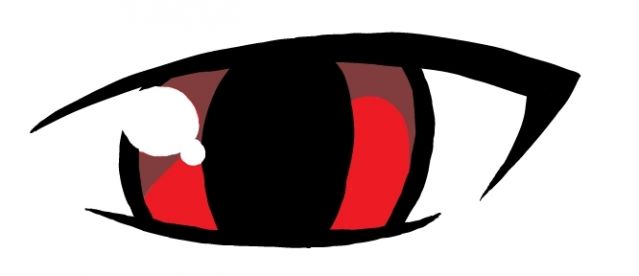
Anger
Physician, Heal Thyself!
An anger management expert manages his own anger...
Posted October 14, 2014


I'm talking about the man in the mirror.
Being an anger-management specialist—and one who takes a relatively radical position against anger— I’m frequently asked if I myself ever get angry.
The answer is yes—of course I do. It's a very hard habit to kick. I don't expect I'll ever achieve zero-anger—no more than I'd expect never to make a spelling mistake, or never to miss a forehand. But I aspire to reduce it as much as possible. It's now very rare that I get angry more than for a fleeting moment. But however fleeting or slight the episode, it will not escape my attention. Having spent the last decade obsessing over the topic, I've become exquisitely attuned to my own experience of anger: I notice (in myself) even the faintest twinge of annoyance, the slightest flicker of disapproval, a shake of the head, a tsk... let alone an outburst. All of which can be a perfectionist's nightmare, but on the other hand provide wonderful clinical case material.
Here's one recent example of my getting angry, and how I reasoned my way out of it.
I was at the Sydney Opera House a few months ago, attending a much-beloved Beethoven concerto, despite persistent neck pain. At interval, when the clapping had ceased, a man sitting behind me tapped me on the shoulder and said, 'You know, you shifting about in your seat and massaging yourself ruined that entire performance for me. You crossed and uncrossed your legs three times. Two thousand two hundred spectators, and you were the only one wriggling about.'
'Oh, how intolerable that must have been for you,' I replied, with nonchalant sarcasm, 'to get the only wriggler in the hall...'
'It was, actually', he went on. ‘… KEEP STILL!'
He spat out these last two words in a kind of muted shout, then turned and left.
I remember watching him leave the hall, shaking my head. How dare he! How obnoxious, and how unkind! Could he not see I was in discomfort? 'Perhaps, sir', I thought, 'what’s ruining your performance is your stifling etiquette, complete lack of empathy, and an inability to disattend to relatively minor distractions...'
I thought of great pianists who routinely sway and hum while playing—what would he say to them? I imagined mosh pits full of head banging punks; swaying hippies listening to love ballads; tribal natives dancing around bonfires... What would they say to his ‘keep still at a performance’ rule? Doesn’t he see that his rule is arbitrary?
And if he didn’t have his little rule, would he have been disturbed in the first place? Basketball players routinely shoot free throws, despite waving and hollering from rival crowds. Surely he can listen to a recital despite one member of a crowd crossing and re-crossing his legs.
Ok. Ok. Steve. The man has work to do. Who doesn’t? But how about you? What of your own anger?It’s all well and good to be doing silent therapy on unknowing strangers. But what of your own ‘anger fallacies’?
If I'm going to transcend my own angry viewpoint here, I'm going to need to truly empathise with the man's reaction, to adopt what Steven Pinker calls the psychologist's-eye view, rather than my own defensive and moralistic one. And it won't be enough to couch it in thinly veiled pseudo-psychological denigrations (he's really just an unhappy old man on a power trip…). I'll need to actually abandon my own point of view for a second and try to glimpse the world through his eyes, even if (and this is the hard part) it casts me momentarily as an inconsiderate jerk squirming inappropriately in a hall.
His attack seems very unsympathetic to my plight, but this shouldn't surprise me: as a rule we lack sympathy for people we’re angry at.
And why should he feel sympathy for me? If he noticed my discomfort at all, he probably thought, ‘Your neck pain is not my problem. If it is so stiff that you can’t help but shift about, don’t attend the concert’. If I were to exhort compassion he might argue that conscientious regard for others is more important than meek compassion for wrongdoers. And besides, what of my empathy for his experience? He probably suffered more than I, subjectively speaking, during the performance.
Ok, but why did he have to be rude about it? Well, let's think about this with detachment. Apart from wishing to punish me (which rudeness certainly achieves better than politeness), he probably expected upbraiding me would stop the offensive behaviour more effectively (this was a miscalculation); and calculated little or no threat of retaliation (probably a safe bet given the formal context, but risky on a bus say). Getting me offside bears little perceived cost for him as he probably viewed me as an unimportant stranger he’d have no future dealings with (which is fair enough). Ok, but why would he think it was appropriate to speak to me in that fashion? Well that's just the righteousness of anger: he would have felt he was delivering social justice and have viewed his behaviour as strong and self-assertive. Most onlookers appeared to view his behaviour as uncivil and priggish (some told me as much); but I can’t blame him for assuming others would think the way he did, and he might well have argued that he felt internally vindicated even if neighbouring spectators didn’t applaud his remonstrations.
So I get it. I get why he felt and acted the way he did. It doesn’t mean I believe he was wise or justified in so doing, but then nor was I in getting angry in turn. I see his anger and my own in the same way I see dogs barking at postmen. Misguided, ultimately, but understandable. What took the anger's place, in my case, was a little sadness. I was left thinking the whole exchange was simply unfortunate—for both of us. I was unlucky, having been in neck pain, to have found myself seated in front of someone so bothered by movement during performances; but I suppose he was equally unlucky, being intolerant of such movement, to have found himself seated behind me. Larry David would probably view the scene as comic, rather than sad; and maybe his viewpoint is more sound. But sad and funny are often two faces of the same coin.

